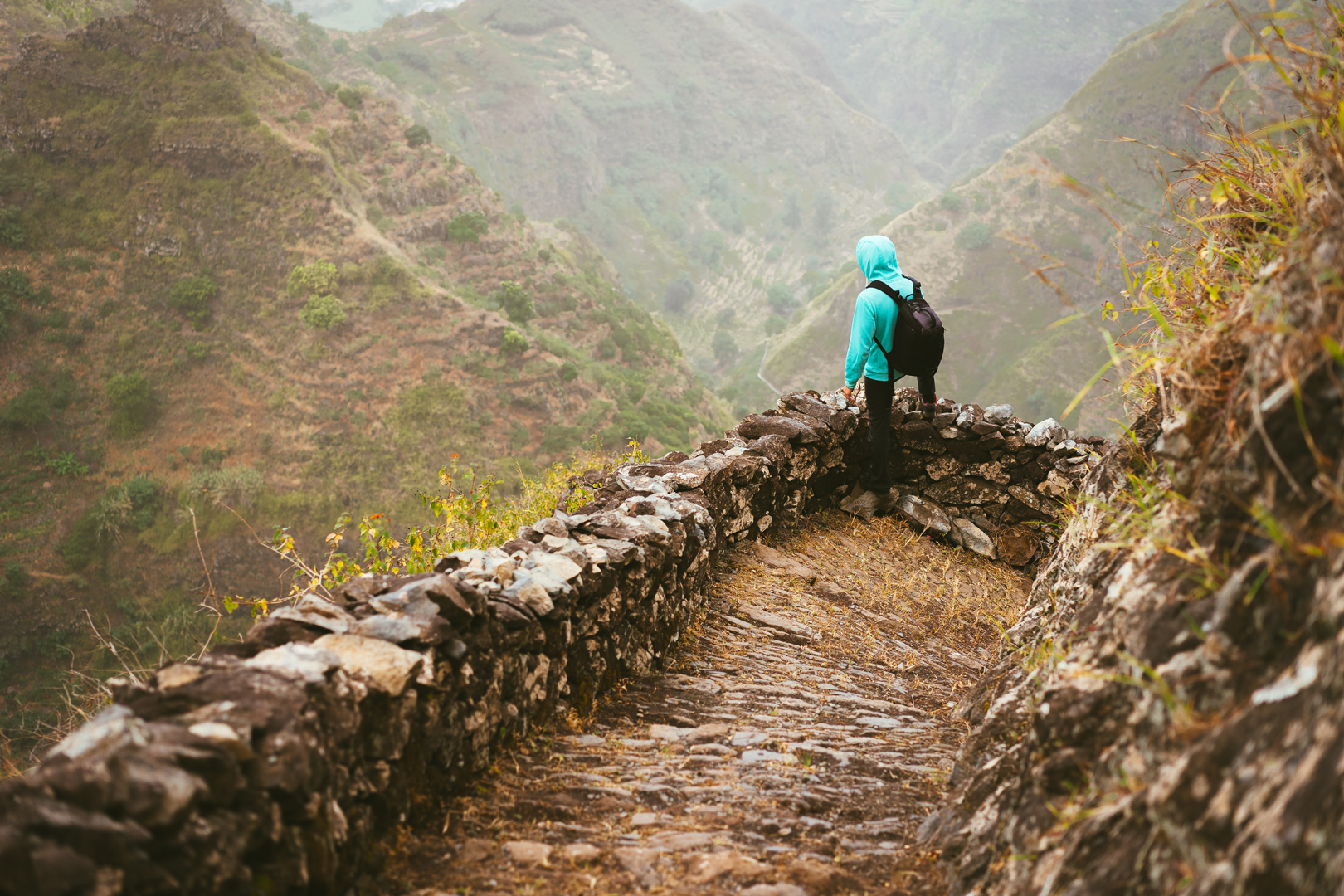
In The Netherlands there is a whole subculture around squatters. Squatters are people who occupy buildings without having a lawful claim to it. Squatting over here is legal as long as the building has not been used for over a year. Buildings that would otherwise stay empty and in disuse. This has been going on since the latter half of the 20th century and however annoying it can be to property owners they serve a function. No property owner here can get away with leaving a building empty for to long. It’s a constant game between owners and squatters.
You’re probably wondering where I’m going with this one: Squatters were my inspiration for this post or rather the skills these squatters have learned to be able to live like they do. They have a minimalist lifestyle. According to law when you occupy a building you need a bed, a table and a chair in order to establish yourself. A mattress, a barstool and a wooden board on a couple of crates is all they need. Some squatters literally own nothing more than the clothes on their back and a mattress.
Traveling for an extended period of time is becoming less of a dream and more of a real goal for people to aim for
The difference between them and the homeless is that they choose to live this way and quite often do have an income. There are even grad students who live this way with nothing more than their books and a place to sleep. A computer can be used at the public library or at university, washing yourself might be done by going to the local swimming pool every few days. Their lifestyle certainly is not for everyone but there is one thing they got down to an art form: minimalist living. I admire them for that skill and their creativity.
Digital Nomads
On a slightly different level there are the digital nomads who are gaining popularity on the Internet. People who quite literally live out of a backpack. Earning enough money to sustain their travels and day to day activities through Internet entrepreneurship.
There is an immense sense of freedom to be had when living this way. A freedom I would almost encourage you to try and experience if you ever get the chance. Most digital nomads I know of run a blog as a means of income. Take Carl Nelson for instance, a professional dancer who has been traveling through the USA the last few months with nothing more than his single suitcase and shoulderbag. He already knows I envy him for this. A bit higher up the nomadic food chain we find people like Tim Ferriss (yes, the 4 hour workweek guy) and Chris Guillebeau. Although as far as I know both these do have a “home base” from where they travel and come back to. (and receive snail mail probably.)
Flashpackers
Another name that sometimes is used for these people is “flashpackers”. Although not applicable to every digital nomad a flashpacker is someone who travels in the same way a backpacker does, but with less stuff. More digital toys (iPod, laptop, GPS perhaps, high-end digital camera) and far less clothing. What they need while traveling they buy. Clothing can be very cheap is you don’t mind not wearing a certain brand and when shirt’s cost you maybe 4 dollars each (in Asia for instance) you might opt for the same strategy unless you want to be frugal. Wear it until it’s time to move on. Toss all the cheap clothing you can’t fit in your bag and take the rest with you to replace later on. You can easily travel the world with only two of everything, washing one while wearing the other.
- Now we hit on a slight problem a lot of people share: missing the ability to throw something out that doesn’t serve a real purpose anymore (other than sentimental value).
Too often we are tied down by the things we own. All those little things that clutter our home or our desk. That porcelain dog figure your aunt gave you, the useless collection of pens that just sit there drying up when you have that one favorite pen you always use, the DVD collection you built up but never watch. Let’s face it, humans are pack rats by nature. We have evolved (I a strong believer of Darwin’s evolution theory but also harbor some Buddhist thought patterns.) in an environment where more was always better. Throwing away anything that might some day be useful could be deadly. (deadly taken literally here) So we waste nothing keep everything.
And now we live in our huge homes, with everything we could ever want and it’s still not enough because now we’re trapped by our belongings. Traveling the world can’t be done because we worry about out plasma TV being stolen or the priceless tropical fish that needs to be fed and only we know how exactly to do that.
Materialism isn’t everything, freedom is
Not only our physical belongings tie us down, our social ties also “help” in staying put. “What will the neighbors think” or “how am I going to explain this to my parents”. Our species started out as nomadic but ever since we started farming we got tied down. Sometimes living our whole lives in the same region just because we grew up there and knew everyone. And we were happy.
But now with the ever diminishing size of the globe due to all the means of transport and the Internet traveling for an extended period of time (Vagabonding or living like a digital nomad) is becoming less of a dream and more of a real goal for people to aim for.
What sets squatters, digital nomads and flashpackers apart from the rest of us? They have acquired the skill to travel very lightly for extended periods of time. Not being tied down by their worldly possessions. They also acquired the skill to generate an income, wherever they are.
The beginner’s mind
How do we begin with this? – This blog is about beginning after all so I’d better tell you how to get started – It starts with recognizing the things that tie us down and adopting a minimalistic lifestyle. Materialism isn’t everything, freedom is. I leave it up to you to decide what freedom is and if you should adopt this way of life. Who is happier, the squatter who can live anywhere? Or the CEO with his giant house and obligations? If you’re happy where you are right now by all means do stay there. If there is some place else you’d rather be, know that many have gone before you.
How to we begin setting up an income? The fun bit is you don’t have to. Money isn’t everything either. You need enough of it to get to where you want to and maybe to pay for your food and a place to sleep. On other continents however it’s not that hard to find a cheap place to sleep or even to get invited to stay somewhere. It’s not about money, it’s about social skills and people.
I’m not a digital nomad myself nor am I a world traveler. I’m an outspoken minimalist however who is always looking for ways to streamline my worldly possessions so eventually I’ll have only those things that can be contained within a backpack. My biggest problem will be my book collection for which I will probably have to rent a very small apartment somewhere. A place to call “home base” so to speak. With nothing more than a bed, a table and a chair… hundreds of books, an Internet connection and a meditation pillow.





